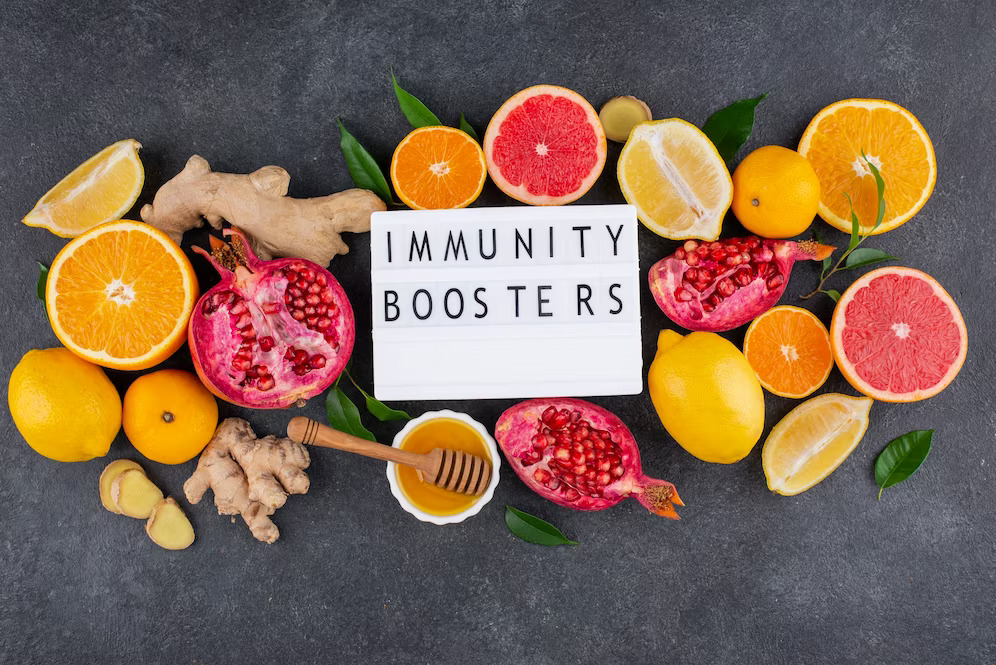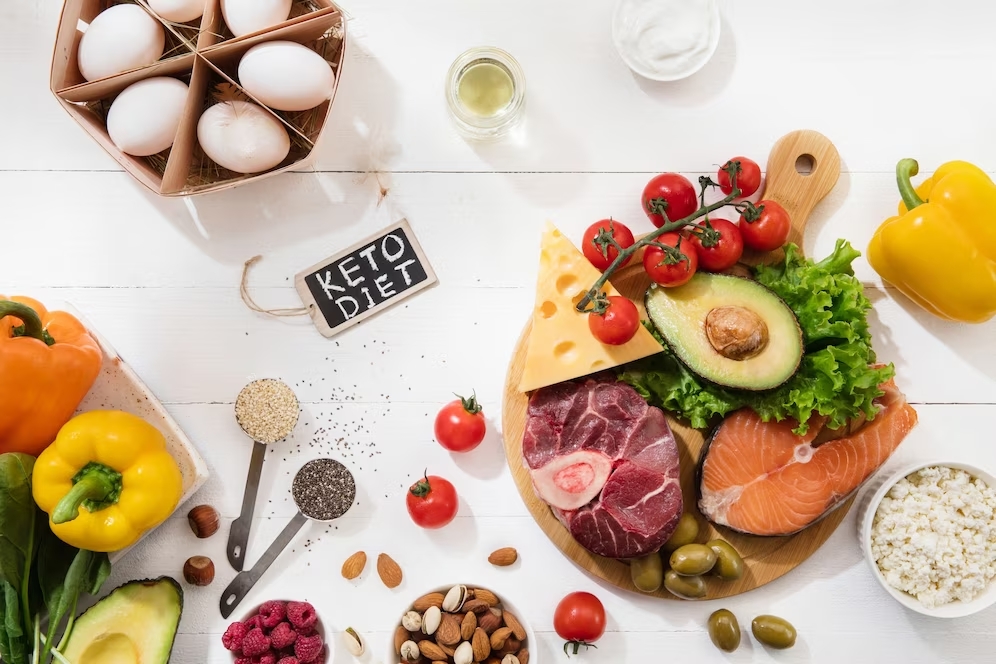In today’s fast-paced world, where convenience often trumps health, maintaining a balanced diet is essential for overall well-being. High cholesterol levels can pose a significant risk to our cardiovascular health. However, the good news is that there are foods readily available that can help lower cholesterol levels naturally. In this article, we’ll explore these cholesterol-busting foods, how they work, and how to incorporate them into your daily diet.
The Cholesterol Conundrum: Understanding the Basics
Before we dive into the foods that can help lower cholesterol, let’s take a moment to understand what cholesterol is and why it matters.
What is Cholesterol?
Cholesterol is a fatty substance found in your blood, and it’s crucial for building healthy cells. However, high levels of LDL (low-density lipoprotein) cholesterol, often referred to as bad cholesterol, can increase the risk of heart disease.
To maintain a healthy heart, it’s essential to strike a balance between LDL and HDL (high-density lipoprotein) cholesterol. While LDL cholesterol can build up on the walls of your arteries, increasing the risk of heart disease, HDL cholesterol helps remove LDL cholesterol from the bloodstream, reducing the risk.
Understanding these cholesterol basics provides a foundation for making informed dietary choices. Now, let’s explore the foods that can play a vital role in managing cholesterol levels.
Oats: Your Breakfast Ally
Soluble Fiber Powerhouse Oats are a fantastic source of soluble fiber, which can help reduce LDL cholesterol levels. The fiber in oats binds to cholesterol in the digestive tract, preventing it from being absorbed into the bloodstream.
When you consume a bowl of oatmeal for breakfast, you’re not just satisfying your morning hunger; you’re also taking a proactive step toward better heart health. Oats come in various forms, from old-fashioned oats to quick oats and steel-cut oats, allowing you to choose your preferred texture. You can also add a variety of toppings like fresh fruits, nuts, and a drizzle of honey to make your oatmeal even more enticing.
Nuts: A Heart-Healthy Snack
The Power of Healthy Fats Nuts, such as almonds and walnuts, are rich in unsaturated fats. These healthy fats can lower LDL cholesterol levels while keeping your heart in top shape.
Despite being calorie-dense, nuts can be an excellent addition to your diet. Their combination of healthy fats, fiber, and antioxidants makes them a satisfying and heart-healthy snack option. Incorporate a handful of nuts into your daily snacks or sprinkle them over salads and yogurt. Just remember that while nuts are heart-healthy, moderation is key to avoid excessive calorie intake.
Fatty Fish: Omega-3 Rich Delights
Omega-3 Fatty Acids to the Rescue Fatty fish like salmon, mackerel, and trout are brimming with omega-3 fatty acids. These essential fats can reduce triglycerides and increase HDL (high-density lipoprotein) cholesterol, the good kind.
Adding fatty fish to your diet offers a flavorful way to boost your heart health. Grilling, baking, or poaching fish can result in delicious and heart-healthy meals. The American Heart Association recommends consuming at least two servings of fatty fish per week to reap the full benefits of omega-3 fatty acids.
Beans and Legumes: Protein Packed and Cholesterol Friendly
Fiber and Plant Sterols Combo Beans and legumes are not only an excellent source of plant-based protein but also contain soluble fiber and plant sterols, which can lower cholesterol levels effectively.
These humble ingredients can be transformed into satisfying dishes that contribute to your heart health. Whether you enjoy a classic bowl of chili, a chickpea curry, or a lentil soup, beans and legumes offer versatility and nutrition. They can also be used as a meat substitute in various recipes, making them an ideal choice for those looking to reduce their cholesterol intake from animal products.
Avocado: Creamy and Heart-Healthy
Monounsaturated Fat Marvel Avocado is a rich source of monounsaturated fats, which can help reduce LDL cholesterol while increasing HDL cholesterol levels.
The creamy texture and mild flavor of avocados make them a delightful addition to numerous dishes. Slice avocado to include in sandwiches or salads, mash it for a creamy guacamole, or spread it on whole-grain toast as a nutritious alternative to butter or margarine. Incorporating avocados into your diet not only contributes to heart health but also enhances the overall taste and texture of your meals.
Garlic: Nature’s Cholesterol Fighter
Allicin Magic Garlic contains allicin, a compound with remarkable cholesterol-lowering properties. Incorporating garlic into your diet can provide significant cardiovascular benefits.
The aromatic allure of garlic has not only earned it a place in countless culinary traditions but also a spot in the realm of natural remedies for heart health. Whether you’re sautéing garlic with vegetables, adding it to pasta sauces, or using it as a seasoning for grilled meats and seafood, this versatile ingredient can elevate the flavor of your dishes while supporting your cholesterol management goals.
Olive Oil: Liquid Gold for Your Heart
A Mediterranean Treasure Olive oil, a staple in the Mediterranean diet, is loaded with monounsaturated fats and antioxidants, making it a heart-healthy choice for cooking and dressing salads.
The Mediterranean diet, often praised for its health benefits, centers around the liberal use of olive oil. You can drizzle extra-virgin olive oil over salads, roast vegetables with it, use it as a base for sautéing, or dip whole-grain bread into it for a delicious appetizer. The versatility and rich flavor of olive oil make it an essential ingredient in heart-healthy cooking.
Berries: Tiny Superheroes for Your Heart
Antioxidant-Rich Goodness Berries like blueberries, strawberries, and raspberries are packed with antioxidants that can reduce oxidative stress and lower cholesterol levels.
The vibrant colors and natural sweetness of berries not only make them a delightful addition to your meals but also a powerful tool for maintaining heart health. Incorporate berries into your diet by adding them to your morning yogurt, blending them into smoothies, or simply enjoying them as a sweet and healthy snack. Their versatility allows you to experiment with various recipes, from berry-filled pancakes to homemade jam without added sugars.
Green Tea: Sip Your Way to Lower Cholesterol
Catechins to the Rescue Green tea contains catechins, potent antioxidants that can improve cholesterol levels and promote heart health.
Sipping on a cup of green tea can become a soothing and heart-healthy ritual. The catechins in green tea have been studied for their potential to reduce LDL cholesterol levels and improve overall cardiovascular health. You can enjoy green tea plain or with a hint of honey for added sweetness. Additionally, you can incorporate it into recipes by using it as a base for marinades or adding it to fruit-infused water for a refreshing twist on hydration.
Dark Chocolate: A Guilty Pleasure That’s Good for You
Moderation is Key Dark chocolate, in moderation, can improve cardiovascular health due to its flavonoid content. Opt for dark chocolate with higher cocoa content for maximum benefits.
Indulging in a small piece of dark chocolate with a high cocoa content can satisfy your sweet cravings while providing heart-healthy benefits. The antioxidants in dark chocolate, particularly flavonoids, have been linked to improved blood flow, reduced inflammation, and lowered blood pressure. Remember that moderation is key, as excessive consumption can counteract the positive effects. Choose dark chocolate with at least 70% cocoa content for the greatest health benefits.
Spinach: Popeye’s Heart-Healthy Choice
Nutrient-Packed Leafy Greens Spinach and other leafy greens are packed with vitamins and antioxidants that support heart health and aid in cholesterol management.
Popeye’s preference for spinach wasn’t just a cartoon gimmick; it’s grounded in nutritional wisdom. Spinach is a versatile leafy green that can be added to salads, omelets, soups, and various dishes to increase their nutritional value. Rich in vitamins, minerals, and antioxidants, spinach contributes to overall well-being and helps with cholesterol management. Whether you’re blending it into a green smoothie or incorporating it into a hearty quiche, spinach is an excellent addition to your heart-healthy diet.
Red Wine: Cheers to Heart Health
Resveratrol Benefits Moderate consumption of red wine, rich in resveratrol, can have positive effects on cholesterol levels and overall heart health.
Raise a glass to heart health with a moderate serving of red wine. Red wine contains resveratrol, an antioxidant found in grape skins, which has been associated with various health benefits, including the potential to improve cholesterol levels and reduce inflammation. While enjoying a glass of red wine, it’s crucial to remember moderation. Excessive alcohol consumption can lead to adverse health effects, so it’s best to limit your intake to one glass per day for women and up to two glasses per day for men.
Apples: An Apple a Day Keeps Cholesterol Away
Fiber and Pectin Magic Apples are high in soluble fiber and pectin, both of which contribute to lowering cholesterol levels.
The old saying “an apple a day keeps the doctor away” holds true, especially when it comes to heart health. Apples are rich in soluble fiber and pectin, which help reduce LDL cholesterol levels. This crisp and refreshing fruit is a convenient and delicious way to support your cholesterol management goals. Incorporate apples into your daily routine by having one as a snack or adding slices to your breakfast cereal. You can also experiment with apple-based recipes, such as homemade applesauce or apple crisps, for a delightful and heart-healthy treat.
Final Thoughts: A Heart-Healthy Diet
Incorporating these cholesterol-lowering foods into your diet can have a significant impact on your heart health. However, it’s essential to remember that no single food is a magic bullet. A balanced diet, regular exercise, and a healthy lifestyle are the keys to maintaining optimal cholesterol levels and a strong heart.
As you embrace these heart-healthy foods, consider creating meal plans that incorporate a variety of these ingredients. By combining oats, nuts, fatty fish, beans, avocado, garlic, olive oil, berries, green tea, dark chocolate, spinach, and apples into your meals, you can craft a diverse and delicious menu that supports your cardiovascular well-being.
Remember to consult with a healthcare professional or registered dietitian before making significant dietary changes, especially if you have existing health conditions or are taking medications. They can provide personalized guidance to help you achieve and maintain healthy cholesterol levels.
Eating your way to better cholesterol levels is not only delicious but also a smart choice for long-term health. By including foods like oats, nuts, fatty fish, beans, avocado, garlic, olive oil, berries, green tea, dark chocolate, spinach, and apples in your diet, you can make significant strides towards a healthier heart.
Frequently Asked Questions (FAQs)
Can I still enjoy dark chocolate if I have high cholesterol?
Absolutely! Dark chocolate, when consumed in moderation and with a high cocoa content, can be a part of a heart-healthy diet. Its flavonoids may contribute to improved heart health.
How much avocado should I eat to lower my cholesterol?
Incorporating half to one whole avocado into your daily diet can be beneficial for cholesterol management. The monounsaturated fats in avocados can help lower LDL cholesterol levels.
Are there any cholesterol-lowering supplements I can take?
While supplements can help, it’s best to obtain these nutrients from natural food sources. Consult with a healthcare professional for personalized advice on supplements and their appropriate usage.
Can I replace olive oil with other cooking oils?
You can substitute olive oil with other heart-healthy oils like canola or grapeseed oil, but be mindful of their composition and use them in moderation. Different cooking oils offer various health benefits, so choose the one that suits your culinary needs.
How long does it take to see improvements in cholesterol levels with these foods?
The time it takes to see improvements in cholesterol levels can vary from person to person. It’s essential to make these dietary changes a part of your long-term lifestyle for the best results. Regular monitoring and consultation with a healthcare professional can provide insight into your progress.

David M is a seasoned author renowned for his expertise in health tips and homemade remedies. With a passion for wellness, he diligently researches and meticulously analyzes a plethora of online resources, ensuring their credibility. David’s dedication shines through as he curates invaluable information, catering to health enthusiasts.










